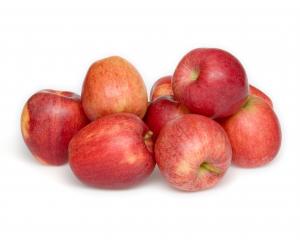
Normal service will soon resume reporting a constant diet of missile strikes in Israel, Gaza and Ukraine along with the endless serving of wildfires and other natural disasters.
The very best news from Paris could have been that New Zealand’s Manuherikia River won the gold medal for water quality against the other finalist — La Seine. It wasn’t even close.

The Games were a triumph of character. To see the pocket battleship Simone Biles win yet more gold along with super fish Katie Ledecky, fairly earns them the tag of Goat — the greatest of all time.
The Games displayed the very best of human nature despite competition being unrelentingly fierce.
To often witness a second-place getter congratulate the winner of a race by the margin of 5-one thousands of a second with a warm smile and handshake brings lines of Rudyard Kipling’s poem to mind:
"if you can meet with triumph and disaster
and treat those two impostors just the same"
The Games showed the very best of the human condition. The winner is remembered — their place etched in gold and history.
The place-getter’s names will fade over time, yet they too deserve a special place in our memories.
We each of us had our favourite performance or performers.
It was the New Zealand sevens team who won gold that was for so many of us, entirely special. This was due to reasons other than just the games they won and then finally the gold medal.
They appropriately called themselves the "Seven Sisters", borrowed from the title of the books of the same name. These women revelled in the performance of each other; they relied on each other; on intelligence, determination, along with the physical and mental abilities of each other to win.
They also only ever saw true success as winning the final. All members of this team won because they had the capacity to train and to discipline themselves to a level necessary to be the best in the world.
Yes, it was over a few days yet on each occasion their focus was unwavering.
Was the introduction of rugby from the playing fields of England at least in part responsible for the wellbeing — the character of the seven sisters and indeed the multitudes who excel regardless of race and circumstance?
You bet, and long may it continue. They truly deserved every accolade.
So too did Hayden Wilde, the triathlete who literally ran himself into the ground. He had nothing left to give yet still found the reserves to congratulate the winner in a genuine way.
That was what sport and Paris, and the Olympics was and is all about. Character beyond measure. It was the best of times.
The worst of times come with the release of the report into child abuse in state- and faith-based care. This report has been described as a blight on our country.
Wrong. It was not a condemnation of "we the people" but of those in authority who chose to ignore the plight of the children they were responsible for.
It was a condemnation of authority figures who had the power and the means to change the lives of so many children who desperately needed help yet were condemned to a young life of abject hell because they chose to do and say nothing.
The question remains. Why were those delegated with the all-important duty of oversight and care not prepared to challenge authorities and the power brokers?
Their failures were just as bad as the actual perpetrators of physical and mental abuse. Such people deserve all the opprobrium as can be brought to bear.
If retribution is not evident then society has failed these people yet again.
It is also the abuse that the Minister for Children, Karen Chhour, has had heaped on her for daring to demand changes to the system — to find a better way, that is so appalling.
To quote Kipling again.
"If you can bear to hear the truth you’ve spoken
Twisted by knaves to make a trap for fools
Or watch the things you gave life to — broken
And stoop to build them up with worn-out tools"
Te Pāti Māori, the very people who should understand the desperate need for change of both authority and outcome, piled in to lead this violence against Minister Chhour.
She is one of those rare individuals in Parliament who has personal experience of her portfolio. Ms Chhour faced real trauma as a child yet found a way to serve as an adult.
The very people (Te Pāti Māori) who should applaud her for demanding real and lasting change — turned against her. They also display their true character.
The greatest threat to Te Pāti Māori’s political future will not be alleged Treaty breaches but the continuing positive impact of people like rugby’s Sevens Sisters made possible through hard work and discipline.
• Gerrard Eckhoff is a former Otago regional councillor and Act New Zealand MP. Our usual Thursday columnist, Hilary Calvert, is on leave.











